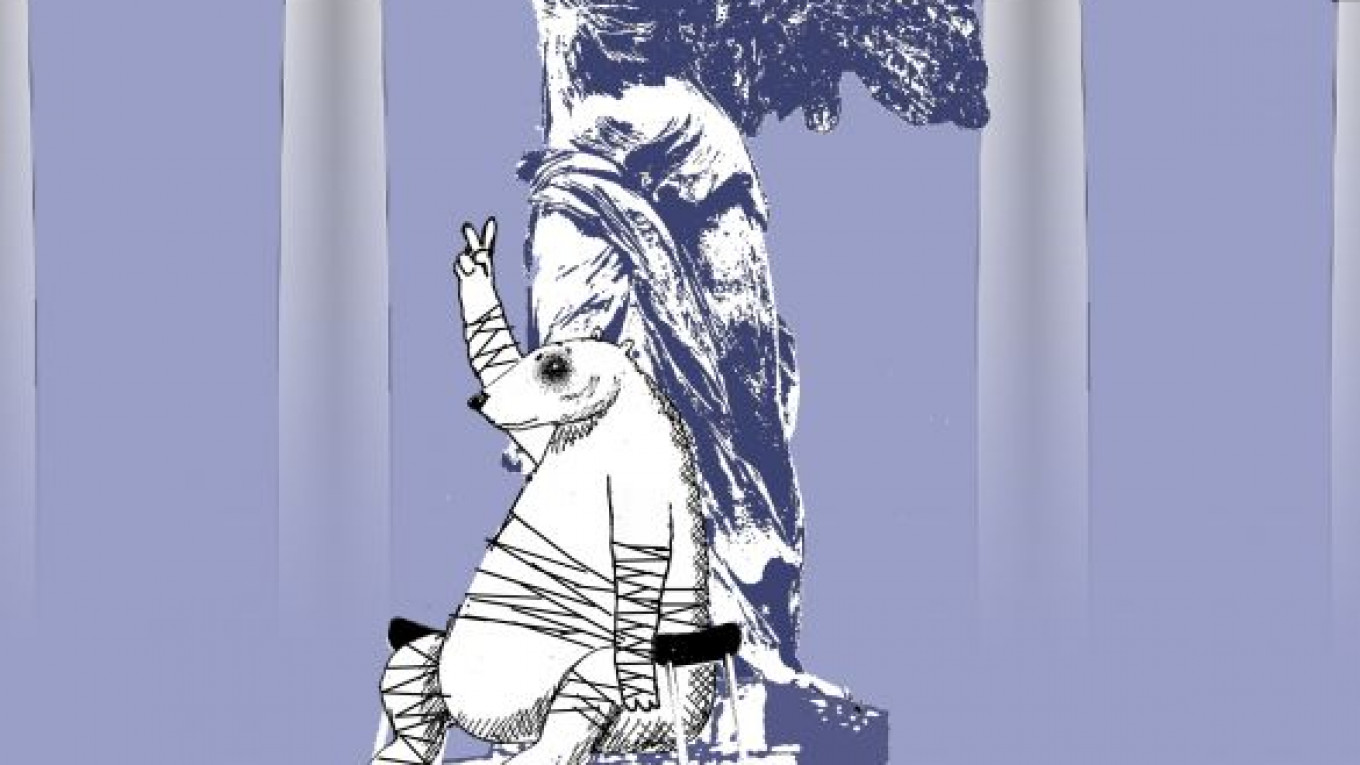They were scared, really scared.
The authorities did not allow a single real opposition party to participate in the State Duma elections. There was no option for “none of the above.” They stripped the very idea of elections of any meaning.
And yet United Russia failed to receive even 50 percent of the vote despite the ubiquitous government-sponsored campaigning for the “party of crooks and thieves,” despite the authorities’ brazen misuse of administrative resources and their “carousels” of paid voters stuffing ballot boxes in multiple polling places, and despite the directors of state enterprises demanding that every employee vote for United Russia or face salary decreases or even dismissal.
From now on, the authorities can no longer fall back on the excuse that “most people support the ‘party of crooks and thieves’ anyway.” No, they don’t.
It was clear that the Kremlin and United Russia were fearing a major electoral disappointment when the authorities began to panic, cracking down on the Golos election-monitoring group in the days leading up to the vote. This was followed by the hacker attack on Ekho Moskvy’s web site on Sunday.
But the Kremlin received its first signals several weeks ago when fans at a mixed martial arts fight at Olimpiisky stadium jeered Prime Minister Vladimir Putin. Those were not bloggers hiding behind anonymous nicknames cursing the authorities from the safety of their homes or intellectuals hurling accusations from their ivory towers. They were not disappointed supporters of Parnas or The Other Russia. These were ordinary working Joes fed up with the status quo and with Putin as its figurehead.
Yes, the use of administrative resources was excessive, but how did it work in practice? Alexei Pluzhnikov, a priest from a small town, described a textbook case on his LiveJournal blog. He wrote:
“I got a call at 9 a.m. ‘The head of the municipal district invites you to a meeting at noon,’ I was told. When I asked why, the secretary answered, ‘He didn’t say.’ That got me worried. What if there was a problem? I finished the prayer service and raced to meet the district head. … We were received not by the district chief but by the deputy head for social programs. Her main mission was clear: ‘You are all so good, such psychologists, so influential. It would be good if you could suggest to your parishioners that they vote for United Russia.’”
True, it was reprehensible that the head of a local government body tried to lobby a priest and his parishioners, but no rewards were offered for fulfilling the request and no punishment was threatened for ignoring it.
The same thing happened in Russia that happened in South Ossetia two weeks earlier. There are some things you can drive into people’s heads and some things you cannot.
For example, you can convince people that the West is out to destroy Russia and that the dollar will soon collapse. But you cannot convince people that Russia is building new roads, hospitals or schools, that the authorities are reducing corruption or that people’s democratic rights are being protected.
It is easy for the Kremlin to dupe the general population concerning abstract things. But when it comes to concrete matters, it is useless trying to convince people that their lives have improved.
I am certain that 99 percent of those who voted against United Russia have never heard of anti-
corruption blogger Alexei Navalny. They were also unaware of the suspicious incident last year involving a top executive at LUKoil. His Mercedes, which was fit with a blue flashing light, crashed into an oncoming car on Leninsky Prospekt, resulting in the death of two passengers in the other car, while he walked away with only minor injuries. Nor were they aware that Putin reportedly had a $1 billion palace built for himself in Gelendzhik. But nearly everyone has had their own experience where a friend or relative was hit by a government official in a speeding car and the guilty party was never brought to justice, or when some corrupt businessman or government official stole the rights to their plot of land and the courts turned a blind eye to the problem.
Theoretically, the regime stands to gain if it punishes an official who runs over a pedestrian, but in practice, the police have a greater motivation to hush up the whole affair, particularly if they can extract a bribe to do it. Theoretically, the regime stands to gain if it is composed of respected individuals, but in practice, top government posts are practically bought and sold like lots at an auction. Once in office, they have a virtual carte blanche to steal.
Putin’s system is disintegrating with frightening speed. My guess is that it won’t survive until the next elections.
Yulia Latynina hosts a political talk show on Ekho Moskvy radio.
A Message from The Moscow Times:
Dear readers,
We are facing unprecedented challenges. Russia's Prosecutor General's Office has designated The Moscow Times as an "undesirable" organization, criminalizing our work and putting our staff at risk of prosecution. This follows our earlier unjust labeling as a "foreign agent."
These actions are direct attempts to silence independent journalism in Russia. The authorities claim our work "discredits the decisions of the Russian leadership." We see things differently: we strive to provide accurate, unbiased reporting on Russia.
We, the journalists of The Moscow Times, refuse to be silenced. But to continue our work, we need your help.
Your support, no matter how small, makes a world of difference. If you can, please support us monthly starting from just $2. It's quick to set up, and every contribution makes a significant impact.
By supporting The Moscow Times, you're defending open, independent journalism in the face of repression. Thank you for standing with us.
Remind me later.






